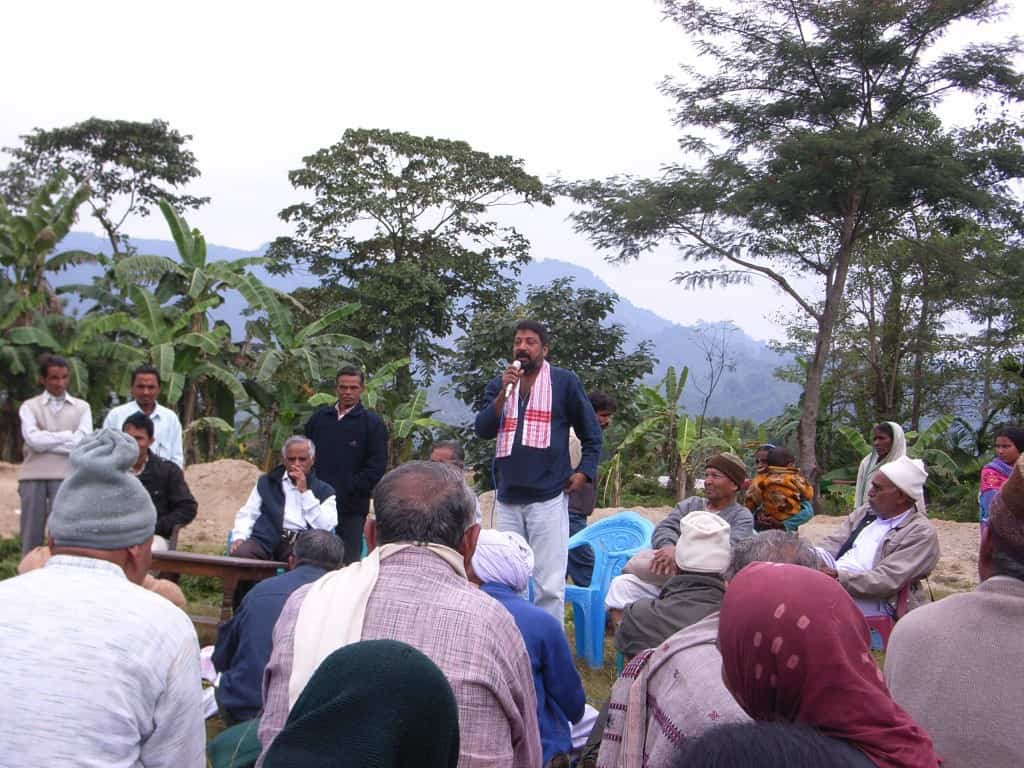Republica feature
the Nepali paper Republica did a feature on my fair trade work here, also the Kathmandu Post and the Himalayan Times
the Nepali paper Republica did a feature on my fair trade work here, also the Kathmandu Post and the Himalayan Times
[youtube]http://youtu.be/JHk9YVjhk7c[/youtube]
‘The minds in the margins are not marginal minds’
I had heard about the fantastic work of Prof. Anil Gupta two years ago while teaching at Sristi College in Bangalore.
Professor Gupta’s interest is in sustainable technologies and remedies found in India’s rural fringes. Traditional technologies such as herbal remedies and other traditional and localised knowledge are facing a decline as these areas adapt to the globalised world. Local knowledge is often under-appreciated in these areas as they strive to modernise. The aim of the Prof Gupta and his team is to record and foster this knowledge so that it is not lost and can perhaps be utilised in new ways.
In addition to this work Gupta and his team are also documenting some incredible new innovations by the local communities they visit. Most of the communities visited by the team are subsistence farmers and use their limited resources in very inventive ways. Without anything other than the resources that grow naturally around them these farmers are living within entirely sustainable systems. There are some really interesting ideas for the developed world.
THE SHODH YATRA
Dr. Gupta had the idea of connecting and learning from these communities 12 years ago. He and his team tried to think of the best way to visit the isolated communities. In the end they decided the only way these places could be visited was by foot, the communities are so isolated that many do not have access by road, also these group walks of learning are deeply rooted in the Indian tradition which Gandhi had tapped into as his way of gathering support and connecting peoples. The Shodh Yatra was born, in Hindi it means literally ‘foot travel’ The first Shodh Yatra was in Gupta’s own state of Gujarat and since there has been a Shodh Yatra every six months. 24 in all so far in almost every region in India. On average 300 people, mainly farmers and academics but also a passionate and extremely diverse bunch of interested individuals from botanists to product designers from all over india and beyond come to each Yatra. Amongst the amazing people we met on the Assam Yatra were journalists, zoologists, architects, anthropologists and a really interesting amateur botanist.
Prof Gupta has set up the Honeybee Network, the idea is to ‘cross pollinate’ isolated communities with the other knowledge systems and innovations of their neighbours. He has collected so many innovations in the past twelve years that their database actually holds the largest amount of registered patents in the developing world. The idea is to use these innovations in a completely open source or creative commons way.
He has also set up the Grassroots to Global network to create business plans for the local amateur innovators to reach a global audience. We joined the Yatra at the Rural Volunteer Centre outside Dhemaji in northwest Assam. The RVC was set up by Ravindranath as an NGO to provide knowledge and training to local farmers. There is also a good article about Dr Guptas work in DESIGN OBSERVER here
I hope i can someday do some work for Dr Gupta. Very inspiring stuff.
professor gupta gives a talk at one of the villages
myself and some of the local kids
banana tree plates
asking the locals about their uses of local herbs 
ravindranath from the RVC
one of the schools we all stayed at.
The Yatra crosses one of many rivers
Thatching a roof outside Dhemaji
An amazing village welcome
Giving a talk in one of the villages
I did a talk at srishti school of art design and technology, bangalore
I had done a 3 week workshop 3 years ago with illustrator matt lee and came back for a short return visit to meet everyone again and stock up on masala dosas.
I had been working with fair trade for the past seven years in London, and i admired the development work that fair trade was doing and wanted to get more involved. I took 8 months off to visit India and Nepal and see if i could create something together directly with the producers. I travelled around to see what could be made in fair trade that would best use design together with craft. The main reason I set it up was to help out the development project, their crafts are of very high standard but the design is not at the same level and so it made sense to rope my designer friends into this too. As it turned out there were plenty of things that we could work on and this has develope
I noticed that there was an opportunity when I posted images of the rugs on my blog. People from all over the place emailed to enquire about buying them and as my blog is followed by many designers people also wanted to ask if they could design their own one. I spent a frustrating year unable to do anything as i didn’t have the facility to receive payment for customers and at the same time the complex bank charges/import duties and logistics made it prohibitive for other designers to order single rugs and have them shipped. I spoke about this to my nepalese friends and
An Interview with daddy be good here